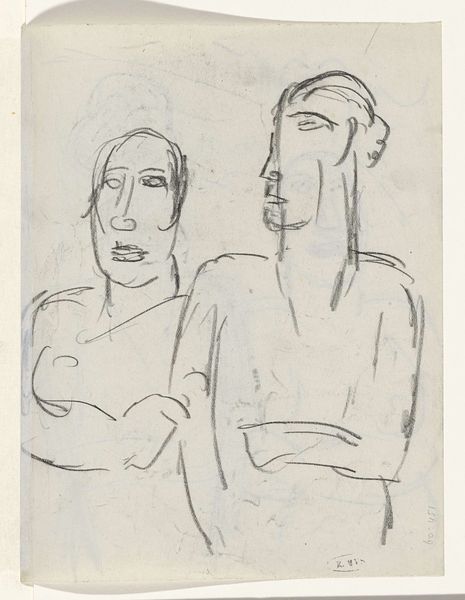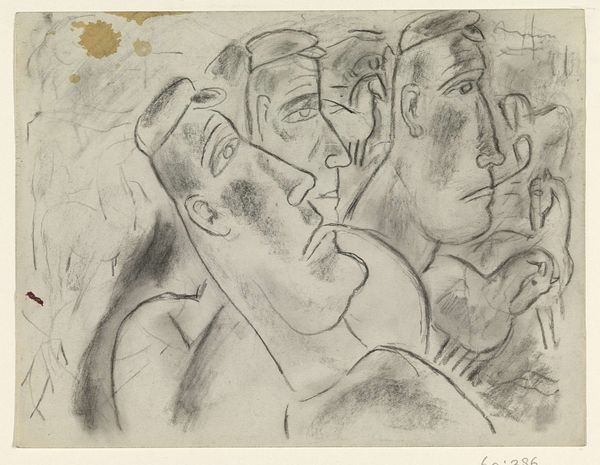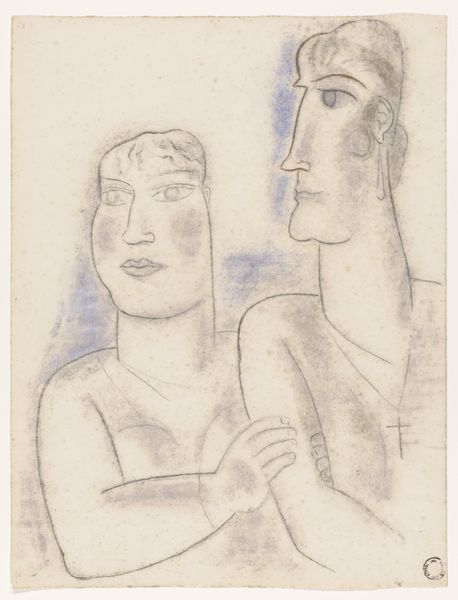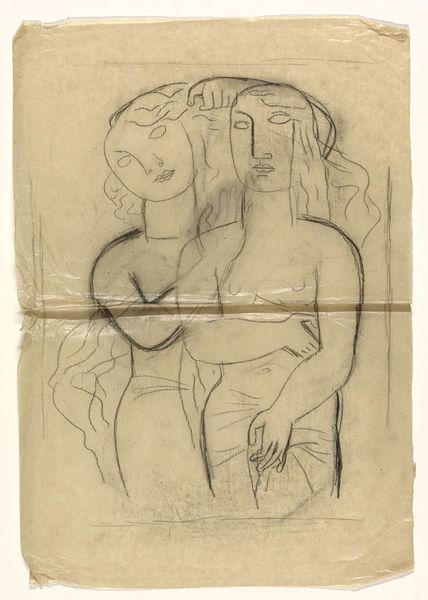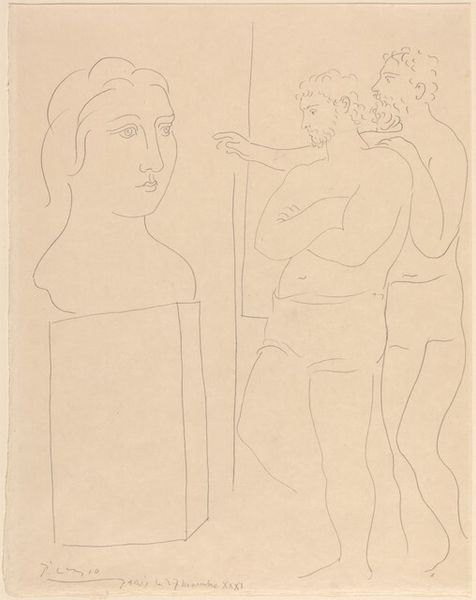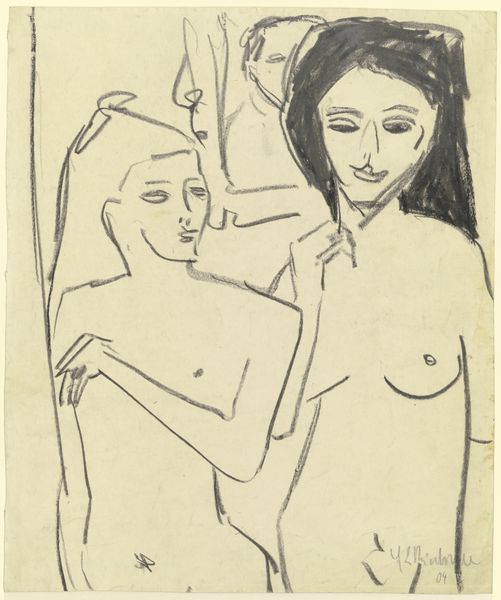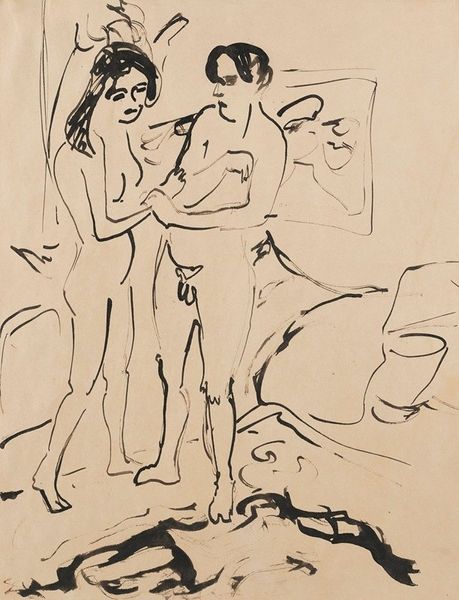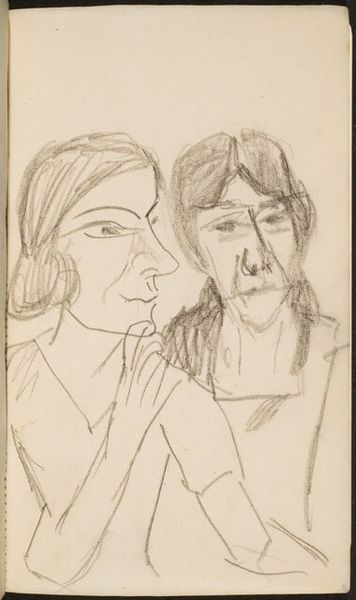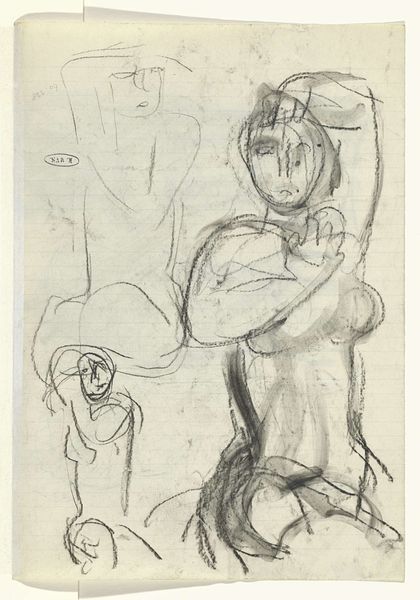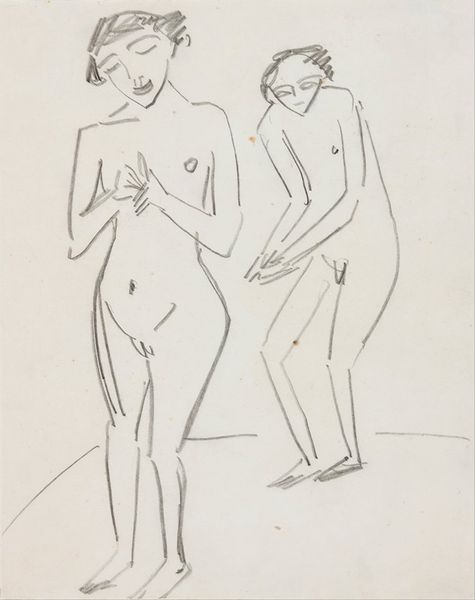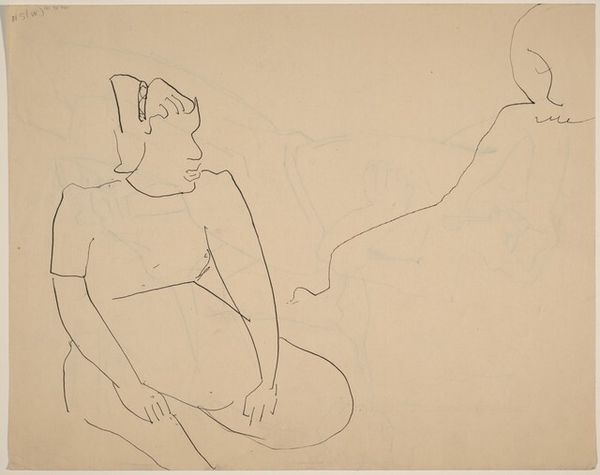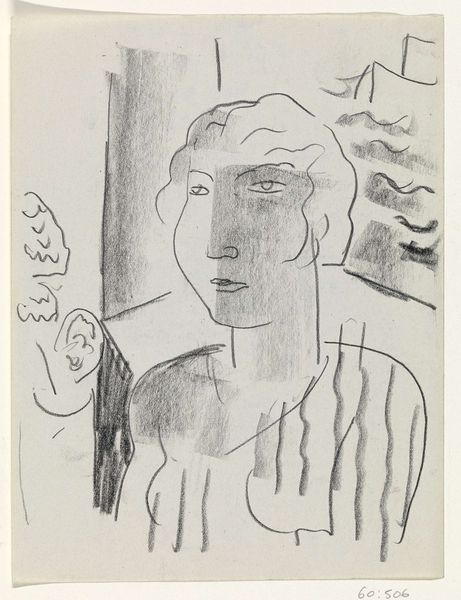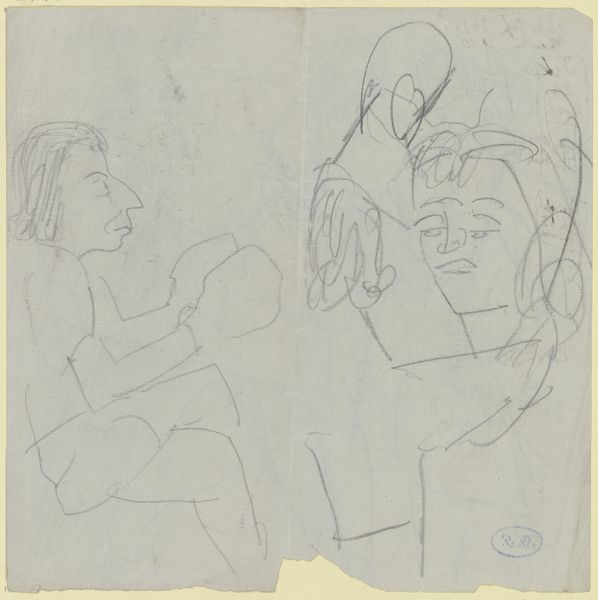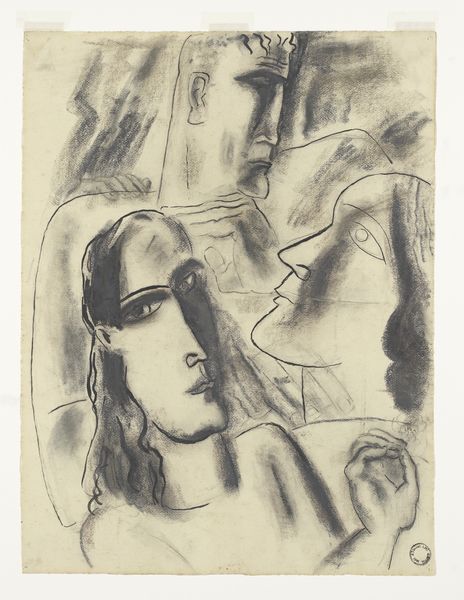
drawing, graphite, charcoal
#
drawing
#
comic strip sketch
#
imaginative character sketch
#
landscape
#
cartoon sketch
#
figuration
#
personal sketchbook
#
idea generation sketch
#
ink drawing experimentation
#
pen-ink sketch
#
expressionism
#
graphite
#
sketchbook drawing
#
charcoal
#
storyboard and sketchbook work
#
sketchbook art
Dimensions: height 161 mm, width 212 mm
Copyright: Rijks Museum: Open Domain
Curator: Welcome. Here in Gallery 3, we're looking at "Twee mensen in een landschap," or "Two People in a Landscape," a graphite, charcoal, and pen drawing by Leo Gestel, created sometime between 1891 and 1941. Editor: Immediately, the raw, almost brutal, strokes give me a sense of anxiety. The figures are stark, their forms simplified yet unsettling. Curator: Yes, the expressiveness is striking. Gestel distorts the figures, elongating features and using bold lines. It's a departure from naturalistic representation, favoring emotional impact. Note how he contrasts the smoother rendering of the figure on the left with the harsher lines defining the other's profile. Editor: I'm wondering about the production of this image. The rapid application of media, the seemingly unfinished background... Was this a preparatory sketch for a larger work? What purpose did the drawing serve? Was it personal, a study, or something meant for public consumption? The work doesn't feel particularly crafted. Curator: Its seeming immediacy is precisely its strength. By manipulating line and form, Gestel evokes an unsettling psychological space, and in doing so emphasizes the autonomy of the aesthetic object and our relationship to it. We as viewers must reconcile these stark figures to a landscape filled with similar distortions. Editor: But what is the landscape here other than a backdrop for these figures? How do our social ideas about labor and the creation of value through materials shift if the landscape feels like mere decoration? The meaning is clearly not about a landscape; it is about something happening between the figures. Curator: Perhaps the landscape functions more as a psychic projection, mirroring the figures' internal states. Observe how the background mirrors the linear dynamism of the figures themselves. This resonates, however ambiguously, with prevailing Expressionist trends of the early twentieth century. Editor: It is an interesting work of rapid artistic exploration; its real interest to me is how it asks about process, intention, and materiality in the artistic creation. Curator: Agreed. It remains a provocative piece, demonstrating Gestel's commitment to subjective experience through formal manipulation.
Comments
No comments
Be the first to comment and join the conversation on the ultimate creative platform.
